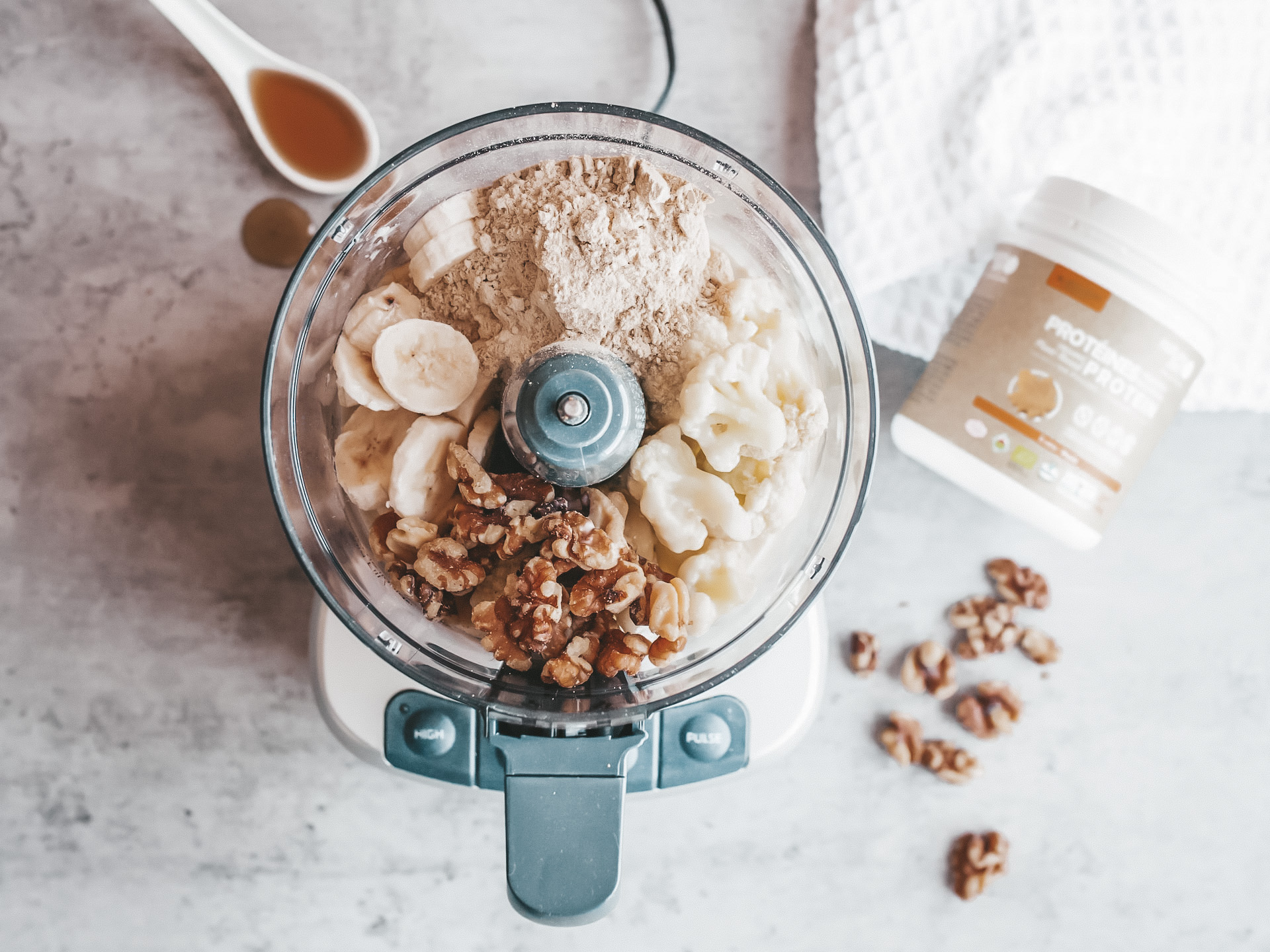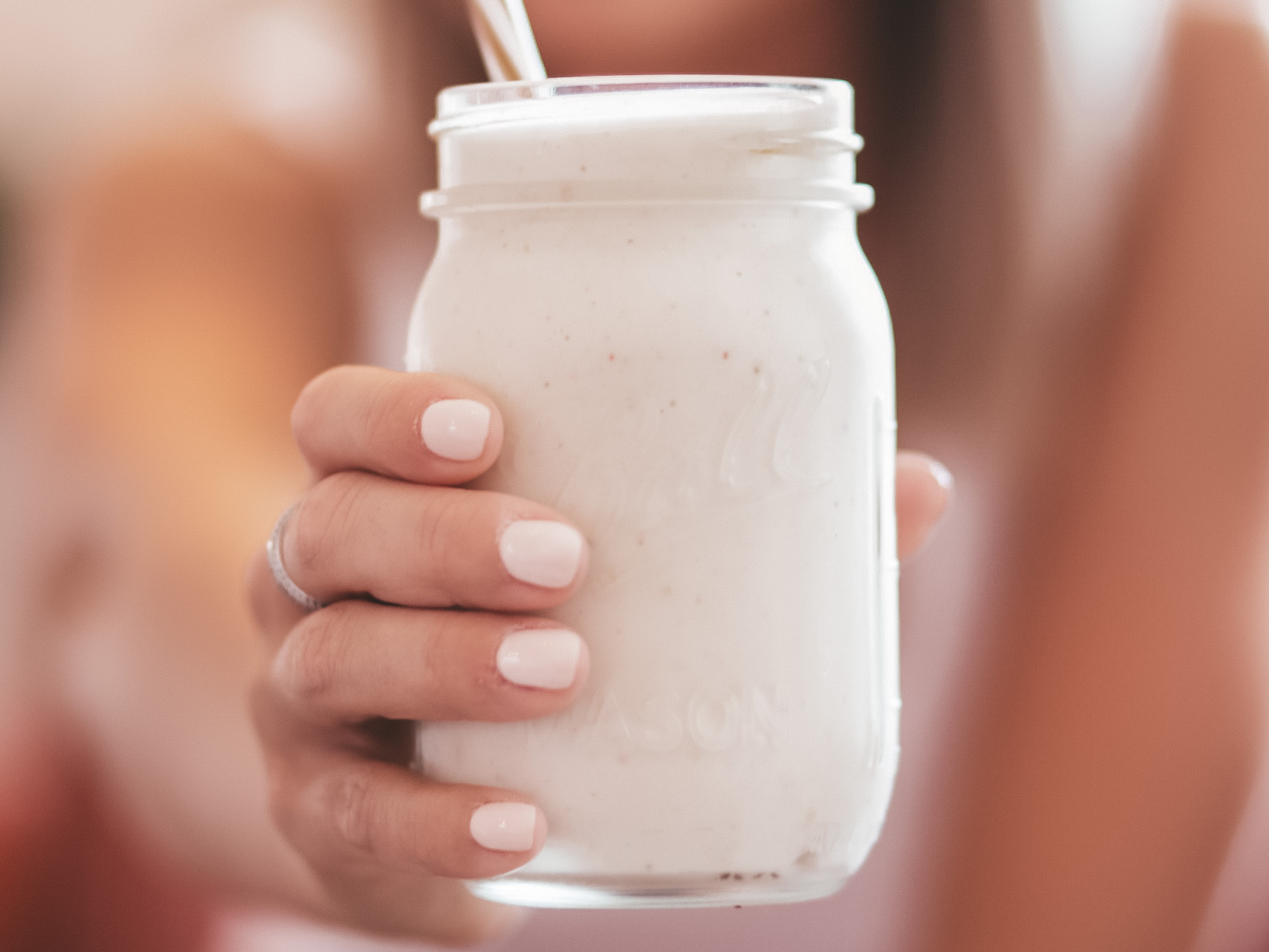It’s no secret that I’m big on prioritising protein in your meals and snacks (read more about why here), and although I advocate for a food-first approach when it comes to protein, I’m also a realist, a busy mum, and a big believer in using conveniences and shortcuts when possible to help us meet our health goals.
This is where protein powders and collagen powders can be of benefit to us as mothers – an easy, convenient way to incorporate more protein into your day.
But, the thing is, the protein supplement market is absolutely saturated with product options and it’s totally overwhelming trying to pick one that is right for you.
In this article (which is part 2 in this series), we are reviewing protein and collagen powders to find the best option for you and your family, as well as answering all your FAQs about these supplements.
If you missed part 1, jump over here to read all about:
- When you might want to use protein powder
- The difference between protein powder and collagen
- How much to use
- What to look for when selecting a product
- Safety considerations
- How to use these powders in everyday life
Disclaimer:
The information provided in this blog is for your personal or other non-commercial, educational purposes. It should not be considered as medical or professional advice. We recommend you consult with a GP or other healthcare professional before taking or omitting to take any action based on this blog. While the author uses best endeavours to provide accurate and true content, the author makes no guarantees or promises and assumes no liability regarding the accuracy, reliability or completeness of the information presented. The information, opinions, and recommendations presented in this blog are for general information only and any reliance on the information provided in this blog is done at your own risk.
The best protein and collagen powders for mothers
The products reviewed below are a mixture of the ones I love and use in clinic, popular options with clients, and your suggested products for review from our Q&A over on Instagram. I have not personally trialled all of these products and this list is definitely not exhaustive, the protein and collagen powder sector is a huge industry with countless products.
If you would like a protein or collagen powder included in this review, you can email me here and I will add it into the next update.
As with any supplement, there will be individual variability in terms of what, if any, product is right for you. This is general educational information only. Always follow the recommendations of your health care provider first and foremost.
For the sake of consistency, the product options reviewed below are the unflavoured or natural options, whenever possible.
Best value
Animal-based protein powders
These are the product that provide the most bang for your buck when it comes to the cost per serve and cost per gram of protein, listed in order of best value. They are not necessarily the lowest cost or cheapest product, but provide the best value for your money spent.
- True Protein Whey Protein Isolate
- True Protein Whey Protein Concentrate
- Googy’s Pure Egg White
- Just Ingredients Just Plain Protein Powder
- Inca Organics Whey Protein
Plant-based protein powders
- Amazonia Raw Protein Isolate
- Just Ingredients Chocolate Vegan Protein
- Bare Blends Plant Protein
- True Protein Plant Protein
- Tropeka Lean Protein
Collagen powders
- Feels Good Collagen Protein
- GelPro Peptipro Collagen
- Nutra Organics Collagen Beauty
- GelPro Multi Collagen
- Designs For Health Wholebody Collagen
Best quality ingredients
These are the product that contain the most high-quality, simple, real food ingredients with minimal or no additives, listed in order of best quality.
Animal-based protein powders:
- Inca Organics Whey Protein
- Googy’s Pure Egg White
- Just Ingredients Just Plain Protein Powder
- Googy’s Good Energy Protein Shake
- Bare Blends Whey Protein Isolate
Plant-based protein powders:
- Bare Blends Plant Protein
- Just Ingredients Chocolate Vegan Protein
- Inca Organics Skin Body Gut Plant Protein
- Amazonia Raw Protein Isolate
- True Protein Plant Protein
Collagen powders:
- GelPro Peptipro Collagen
- Designs For Health Whole Body Collagen
- Gelpro Multi Collagen
- Gelpro Marine Collagen
- JS Health Marine Collagen

Most unique product
These are the products that offer something unique and may be useful for you depending on your health goals.
Animal-based protein powders:
- Just Ingredients Just Plain Protein Powder – versatile applications for baking
- Googy’s Good Energy Protein Shake – all-in-one shake ingredients, just add liquid and blend
Plant-based protein powders:
- Just Ingredients Chocolate Vegan Protein – versatile applications for baking
- Amazonia Pregnancy Protein – a protein and wholefood based multi vitamin for pregnancy
- Inca Organics Skin Body Gut Plant Protein – contains protein with prebiotics, probiotics, and hyaluronic acid for gut health
Collagen powders:
- GelPro Multi Collagen – contains all 5 types of collagen, making it versatile in it’s functional applications across the body
- Inca Organics Collagen – contains vitamin C and hyaluronic acid for gut and skin support
- JS Health Vitality X + Collagen – contains additional herbal ingredients, amino acids, and vitamin C for skin and gut support
Overall MVPs
These are the products that stand out as the overall best products across the metrics above and below in the full comparison table, listed in order of best overall.
Animal-based protein powders:
- Inca Organics Whey Protein
- Bare Blends Whey Protein Isolate
- True Protein Whey Protein Isolate
- True Protein Whey Protein Concentrate
- Googy’s Pure Egg Whites
Plant-based protein powders:
Importantly, for plant proteins, the best options are those that contain a blend of different plant protein sources for the best amino acid profile, along with sprouted or fermented proteins for best bioavailability and tolerability.
- Amazonia Raw Protein Isolate
- True Protein Plant Protein
- Bare Blends Plant Protein
- Just Ingredients Chocolate Vegan Protein
- Nutra Organics Thriving Protein
Collagen powders:
- Designs For Health Whole Body Collagen – because it contains standardised forms of collagen that are the same as the ones used in research studies
- GelPro Multi Collagen
- Gelpro Peptipro Collagen
- Gelpro Marine Collagen
- Inca Organics Collagen
// FREE GUIDE //
7 simple steps for tired mamas to boost energy
(even when you’re not sleeping)

Complete product comparison table
Below is the entire product comparison table I formulated to make ratings above. There may be some terms or references that are unfamiliar to you, in which case jump over to part 1 of this guide series to read more about what factors to consider when choosing a product.
When making the star rating at the far end of the table, I have taken into consideration the following factors:
- Value and affordability
- Quality of Ingredients
- Type of protein used & bioavailability
- Other ingredients
FAQs
Answering all of your FAQs!
What age can you share protein powder smoothies with kids or toddlers?
This question was covered in detail in part 1 of this protein & collagen guide series, see here.
In short, a good quality collagen that contains no additional ingredients is safe to give to babies from 6 months+ when starting solids. Like any supplement, it should be used as an add-on to a healthy diet, not a replacement. Age-appropriate doses should be given.
For protein power, this is more of a grey area. It can be given safely to children at the right doses and in the right circumstances. Chose the highest quality product you can afford and read more about the considerations in part 1 of this guide.
Will collagen powder support or slow postpartum hair loss?
Right now, there is no research that allows us to confidently say that taking collagen will slow postpartum hair loss, but we do know that hair is made of protein so having adequate protein intake is very important for hair health.
Collagen is also needed for the hair follicle and hair shaft, so it supports healthy, strong regrowth.
It’s important to know that some degree of hair loss is normal and expected postpartum, and is driven by the hormonal shifts of pregnancy and postpartum. This is not to say that all degrees of loss are normal, sometimes hair loss in the postpartum period can be excessive in amount or duration.
Having sufficient nutrients needed for good hair health means that regrowth will be robust and quick, and that hair loss doesn’t move past normal into excessive. So in this sense, collagen can be supportive for hair regrowth.
Why do protein powders cause gas but collagen doesn’t?
There are a few reasons why protein powders can trigger digestive symptoms like gas or bloating.
Firstly, whey protein powder can be difficult for those with lactose intolerance and trigger bloat and gas due to the indigestion of the lactose. This can potentially be overcome by either choosing a product with whey protein isolate specifically or a non-whey protein powder option. Many are listed in the article above. Whey protein isolate contains virtually no lactose and can be tolerated by many people with lactose intolerance.
Secondly, a typical serving of protein powder contains a fairly large dose of protein and this big dose can be difficult to digest when you’re not adapted to having this much at once. This can usually be overcome by gradually building up to a full dose over a few weeks. Start with ¼ dose, increase to ½ a dose, then finally up to a full dose when you’ve developed more tolerance.
Collagen powder provides a much lower dose of protein per serve and is a much smaller protein chain, and is therefore easier to digest.
What is the difference between protein powder and collagen powder? Is one better than the other?
This question was answered in detail in part 1 of this guide over here. But in short, protein powder provide an isolated protein extract from a given protein source, while collagen is a specific type of protein found the connective tissue of animals and has specific functional applications for things like skin, gut, bones, joint, and hair health.
One is not better than the other; it depends on your goals. If you’re looking for a general protein supplement, a protein powder is probably best. If you have specific goals for skin, hair, bones, joint, or gut health, collagen might be best. Collagen is a little more versatile in its applications because it’s tasteless and dissolves in liquids.
Much more detail in part 1 of the guide.
Is whey protein suitable for those with lactose intolerance? (difference between whey protein concentrate versus isolate)
There are two types of whey protein powders available in products – whey protein concentrate (WPC) and whey protein isolate (WPI). WPC contains small amounts of lactose and usually isn’t suitable for those with lactose intolerance, while WPI contains only trace amounts of lactose and is usually tolerated by those with intolerances.
The difference between the two types of whey protein is the degree of processing – WPI has been processed to a greater degree, removing more of the non-protein parts of the original food
Are protein powders and collagen powders safe in pregnancy and breastfeeding?
Generally speaking, protein powders and collagen powders are safe in both pregnancy and breastfeeding. In fact, in many cases, they are beneficial to support your health through these life phases.
The biggest safety issue to look out for are any additional ingredients in products that might not be safe for these stages, such as added herbal medicine ingredients that are contraindicated in pregnancy or lactation.
Always get personalised advice for your specific circumstances, especially in pregnancy.
Should I get a flavoured or unflavoured product?
I’m a big fan of unflavoured or natural options because I think they’re much more versatile. However, there isn’t anything wrong with getting a flavoured option, but ask yourself how you will most likely use the powder day to day – do you plan on simply making it into a protein shake? Well then, a flavoured option might be best. But if you would like to use it within other recipes, smoothies, and foods, an unflavoured option will be most versatile.
Most flavoured options have less protein per serve by a few grams (not an insignificant amount), which accounts for the extra ingredients added to flavour the product.
Check the ingredients list to see how the product has been flavoured – choose a product that uses real-food flavourings when possible, otherwise natural flavours are usually used. Avoid artificial flavours whenever possible.

Final note
We’ve covered a lot of ground in this blog and I hope it’s helped you to get some clarity about what, if any, products are right for you and your family.
Leave any questions you have below!
Disclaimer:
The information provided in this blog is for your personal or other non-commercial, educational purposes. It should not be considered as medical or professional advice. We recommend you consult with a GP or other healthcare professional before taking or omitting to take any action based on this blog. While the author uses best endeavours to provide accurate and true content, the author makes no guarantees or promises and assumes no liability regarding the accuracy, reliability or completeness of the information presented. The information, opinions, and recommendations presented in this blog are for general information only and any reliance on the information provided in this blog is done at your own risk.


0 Comments